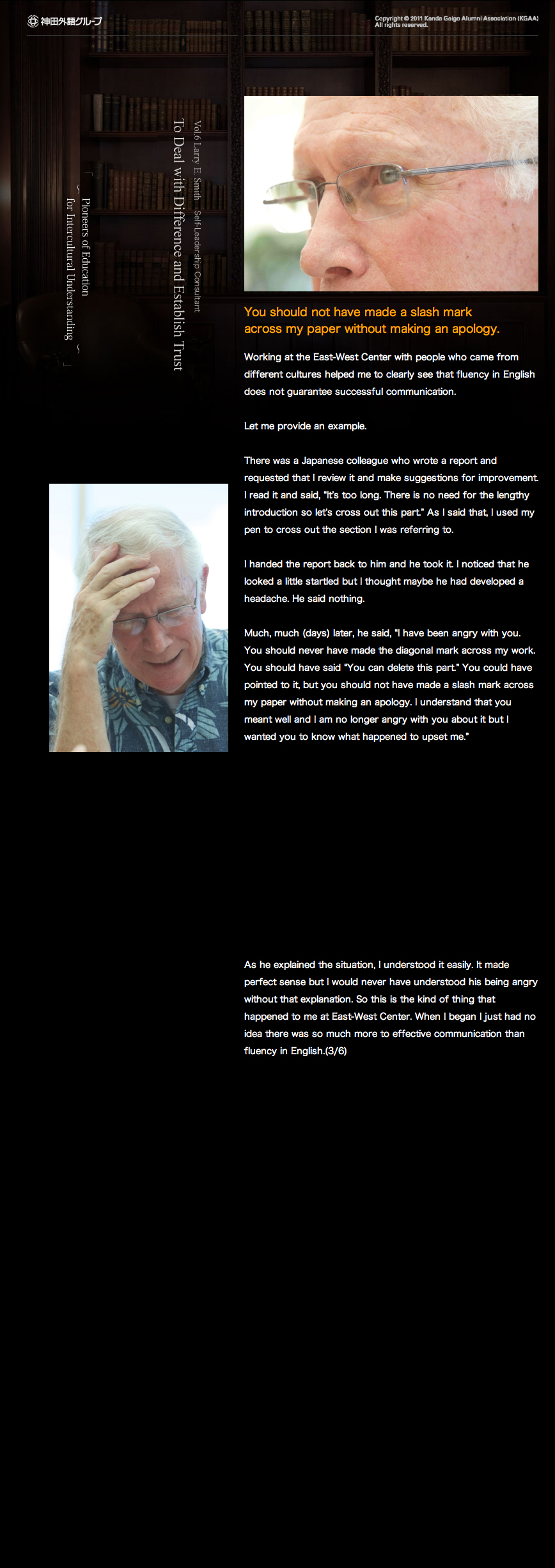

Copyright © 2011 Kanda Gaigo Alumni Association(KGAA). All rights reserved.

Working at the East-West Center with people who came from different cultures helped me to clearly see that fluency in English does not guarantee successful communication.

Let me provide an example.
There was a Japanese colleague who wrote a report and requested that I review it and make suggestions for improvement. I read it and said, “It’s too long. There is no need for the lengthy introduction so let’s cross out this part.” As I said that, I used my pen to cross out the section I was referring to.
I handed the report back to him and he took it. I noticed that he looked a little startled but I thought maybe he had developed a headache. He said nothing.
Much, much (days) later, he said, “I have been angry with you. You should never have made the diagonal mark across my work. You should have said “You can delete this part.” You could have pointed to it, but you should not have made a slash mark across my paper without making an apology. I understand that you meant well and I am no longer angry with you about it but I wanted you to know what happened to upset me.”
As he explained the situation, I understood it easily. It made perfect sense but I would never have understood his being angry without that explanation. So this is the kind of thing that happened to me at East-West Center. When I began I just had no idea there was so much more to effective communication than fluency in English.(3/6)